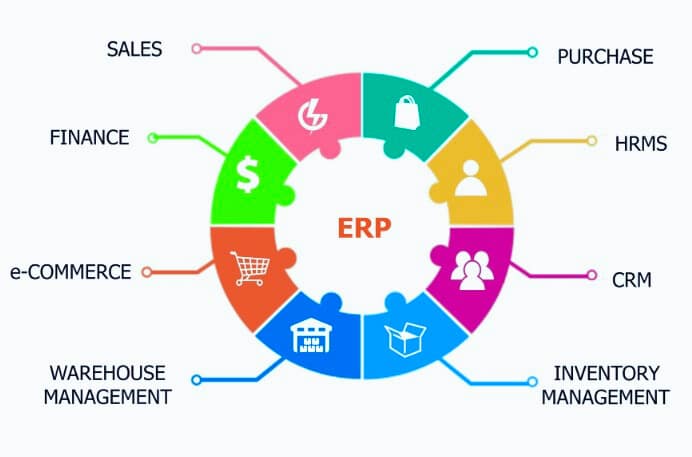Enterprise Resource Planning (ERP) systems are no longer exclusive to large corporations; they’ve become invaluable tools for small businesses seeking to enhance efficiency and compete in the modern business landscape.
This article delves into the key features, benefits, and significance of ERP for small businesses, shedding light on how it streamlines operations and contributes to sustainable growth.

Unveiling ERP for Small Business
Tailored Solutions for Small Enterprises
ERP for small businesses is designed with the unique needs of smaller enterprises in mind. These systems offer tailored solutions that address specific challenges faced by small businesses, providing scalability and flexibility.
Affordability and Accessibility
Unlike traditional ERP systems that might be cost-prohibitive for small businesses, modern ERP solutions are more affordable and accessible. Cloud-based options, in particular, eliminate the need for significant upfront investments in hardware and IT infrastructure.
Key Features of ERP for Small Business
Integrated Business Processes
ERP for small business excels in integrating various business processes, including finance, inventory management, human resources, and customer relationship management. This integration ensures a unified approach to managing different aspects of the business.
Scalability
Scalability is a crucial feature for small businesses that aspire to grow. ERP systems can seamlessly scale with the business, accommodating increased data, users, and processes as the company expands.
Automation of Routine Tasks
ERP for small business automates routine and time-consuming tasks, reducing manual effort and minimizing the risk of errors. This automation enhances overall operational efficiency.
Real-Time Analytics and Reporting
Access to real-time analytics and reporting is a significant advantage of ERP for small business. Decision-makers can make informed choices based on up-to-date information, contributing to agile and data-driven decision-making.
The Benefits of ERP for Small Business
Increased Operational Efficiency
By integrating and automating various business processes, ERP for small business significantly increases operational efficiency. This is particularly crucial for small enterprises where every resource must be utilized effectively.
Cost Savings
The affordability of ERP for small business translates into cost savings. With reduced manual efforts, minimized errors, and optimized processes, small businesses can achieve better cost-effectiveness in their operations.
Enhanced Data Security
ERP systems prioritize data security, ensuring that sensitive business information is protected. Small businesses can benefit from the robust security measures implemented by ERP providers, reducing the risk of data breaches.
Improved Customer Relations
Through features like customer relationship management (CRM), ERP for small business helps in improving customer relations. Businesses can track customer interactions, personalize communication, and enhance overall customer satisfaction.
Implementing ERP for Small Business
Needs Assessment
Conducting a thorough needs assessment is crucial before implementing ERP for small business. Understanding specific business requirements ensures the selection of an ERP solution that aligns with organizational goals.
Vendor Selection
Choosing a reputable ERP for small business vendor is pivotal. Factors such as vendor reliability, support services, and the scalability of the ERP solution should be carefully evaluated.
User Training
Comprehensive training programs should be implemented to ensure that users across the small business can effectively navigate and utilize the features of the ERP system. User proficiency maximizes the benefits of the system for day-to-day operations.
Conclusion
ERP for small business emerges as a strategic tool for smaller enterprises aiming to compete in a dynamic business environment. With its tailored solutions, affordability, and scalability, ERP systems empower small businesses to streamline operations, increase efficiency, and position themselves for sustainable growth. As technology continues to advance, the adoption of ERP for small business becomes essential for those seeking to thrive in a competitive marketplace.